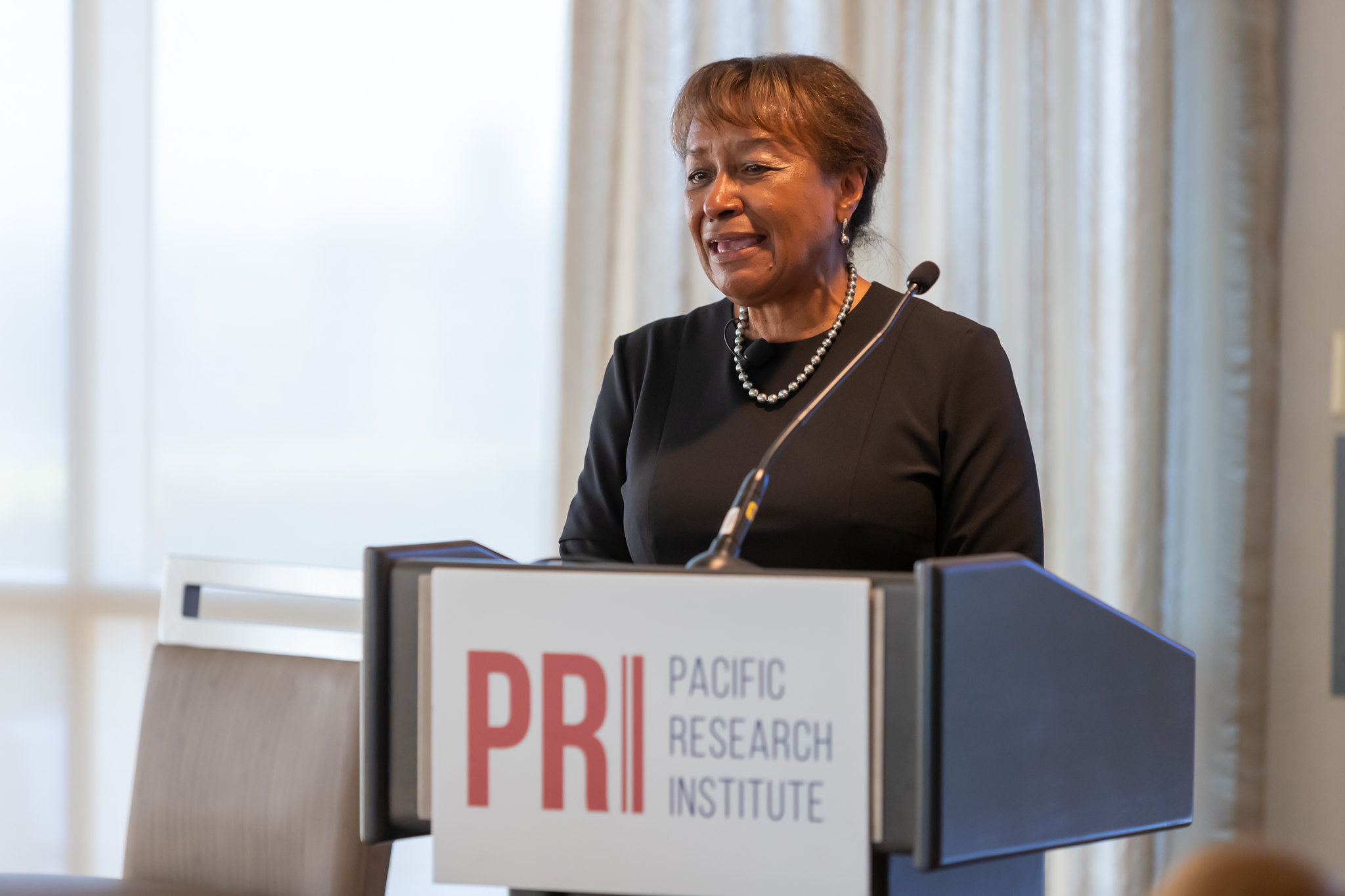In his bid for the White House, Pres. Biden promised to appoint the first Black woman to the U.S. Supreme Court. As a senator, however, he did everything possible to prevent it from happening.
In 2003, then-Senator Biden used the filibuster (what progressives are now calling racist) to block the nomination of California Supreme Court Justice Janice Rogers Brown to the U.S Circuit Court of Appeals for the D.C. District, considered a stepping-stone to the U.S. Supreme Court. For two years, Biden joined 44 Democrats in holding up Judge Brown’s appointment, voting three times against her  confirmation, according to FOX News host Laura Ingraham, herself an attorney who clerked for Justice Clarence Thomas. Only after Republicans made a deal with Democrat centrists to end the filibuster was she finally confirmed in June 2005. At the time, Judge Brown had been reportedly considered a possible replacement for Justice Sandra Day O’Connor. But later that fall, the nomination went to Samuel Alito.
confirmation, according to FOX News host Laura Ingraham, herself an attorney who clerked for Justice Clarence Thomas. Only after Republicans made a deal with Democrat centrists to end the filibuster was she finally confirmed in June 2005. At the time, Judge Brown had been reportedly considered a possible replacement for Justice Sandra Day O’Connor. But later that fall, the nomination went to Samuel Alito.
Fast forward to the present. Despite progressives’ best efforts to institute gender and racial preferences, polls show that Americans continue to be uncomfortable with the idea, especially when picking justices for the U.S. Supreme Court. An ABC News/Ipsos poll found that an overwhelming three-quarters of Americans (76 percent) want Biden to consider “all possible nominees,” and only 23 percent want him to follow through on his campaign promise to nominate a Black woman to the high court.
Indeed, it turns out that Americans have the right instincts when it comes to their Constitution. George Washington University law professor Jonathan Turley reminded Washington’s pols that the Supreme Court has repeatedly rejected “threshold exclusions on the basis of race or gender as raw discrimination.” He points to California v. Bakke, where the Supreme Court ruled that “affirmative action in medical school admissions was unconstitutional. The justices declared that preferring ‘members of any one group for no reason other than race or ethnic origin is discrimination for its own sake’ while adding that ‘this the Constitution forbids.’”
Turley also counters the charge that Pres. Reagan made a similar pledge to pick a woman for the Supreme Court. In keeping with Bakke, Turley maintains that aides at the time said there were no guarantees that a woman would be the nominee, and that men were also being considered: “Reagan did what many universities do in seeking to add diversity in admissions while not excluding other applicants.”
Was Biden’s promise a mistake? George Stephanopoulos posed this question to panelists on ABC’s This Week. After all, his vice presidential pick proved disappointing even for many in his own party. Reihan Salam, president of the Manhattan Institute, offered this thoughtful comment:
I think the promise was a mistake insofar as it limited, it narrowed, the president’s options. He has a great many diverse candidates to choose from. I think that one thing to keep in mind is that the Democratic coalition is awfully diverse along many different dimensions…. When you look at the four leading contenders as far as news reports go, these are people with dramatically different experiences and actually some subtle differences in ideological sensibilities as well. Someone like Leondra Kruger [Associate Justice of the California Supreme Court] is known as a pretty heterodox person, someone who has often times voted with conservatives on the California Supreme Court. So I think that recognizing the distinctions among black women and recognizing that there are many other kinds of diversity one could bring to the bench is a good and valuable thing. And Democrats ought to keep it in mind.
President Biden is now getting a second chance to put a highly qualified Black woman from California on the Supreme Court. We’ll see if he takes the opportunity.
Rowena Itchon is senior vice president of the Pacific Research Institute.

